When I saw this social-media post about the anniversary of Sam Houston’s death, it got me pondering about the past vs. present, and Americans of yore vs. Americans today. And I wondered: what can we actually learn from this intriguing “colossus in buckskin”?
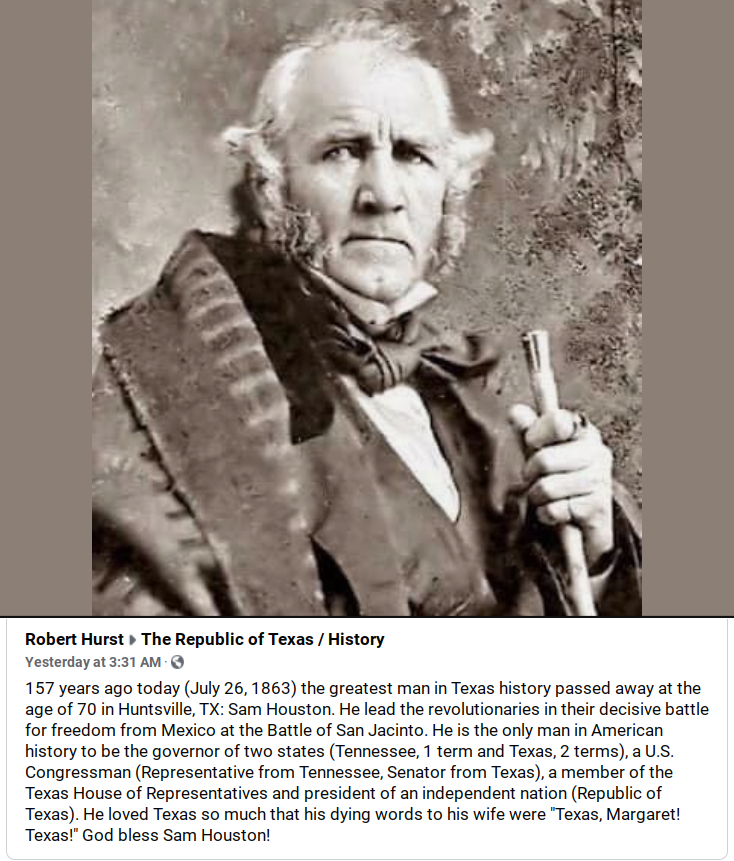
My eldest son is named Houston because it’s a family surname on his paternal grandmother’s side, his dad was born and raised just outside of Houston, Texas, and we admire the great statesman. In addition to all of Sam Houston’s accomplishments listed above, he was a native Virginian like me, of Scottish descent like me and my husband, and an educator like me, so his story speaks to us.
Houston was also an honorary Cherokee (known as “Raven” amongst the tribe), was fluent in the Cherokee language, and eventually became an activist for the rights of these Indians with whom he had lived and respected for so much of his life, even though he had once been instrumental in Indian resettlement in the West.
Like “Manifest Destiny,” Houston was a paradox. He was both complicated and simple, professional and peculiar, an American and Mexican citizen, a Texas traditionalist and a pioneer, a soldier and a diplomat, an adventurer and a settler, a well-dressed gentleman and a disheveled dissident, a patriot and an ardent individualist, a Christian and a worldly man, a peacemaker and a warrior, a slaveholder and an opponent of the spread of slavery to new territories, a careful negotiator and a passionate whirlwind.
For instance, when Houston felt that William Stanberry of Ohio had insulted him in the US Capitol, he beat the federal representative with a cane in the streets of Washington. President Andrew Jackson wished “there were a dozen Houstons to beat and cudgel the members of Congress.”
“The House voted 149 to 25 to arrest Houston … [but] the night before his summing up to the jury, Houston got drunk with some friends, which included the Speaker of the House, who was also the presiding judge. Hung over Houston was, but he rallied the next morning for a brilliant performance,” wrote Bill Porterfield in 1975.
“He spoke for almost an hour, bringing in Greece and Rome and the Tyrannies of Caesar, Cromwell and Bonaparte. He quoted Shakespeare, Blackstone and the Apostle Paul, and a woman from the gallery threw a rose at his feet and shouted, ‘I had rather be Sam Houston in a dungeon than Stanberry on a throne!’”
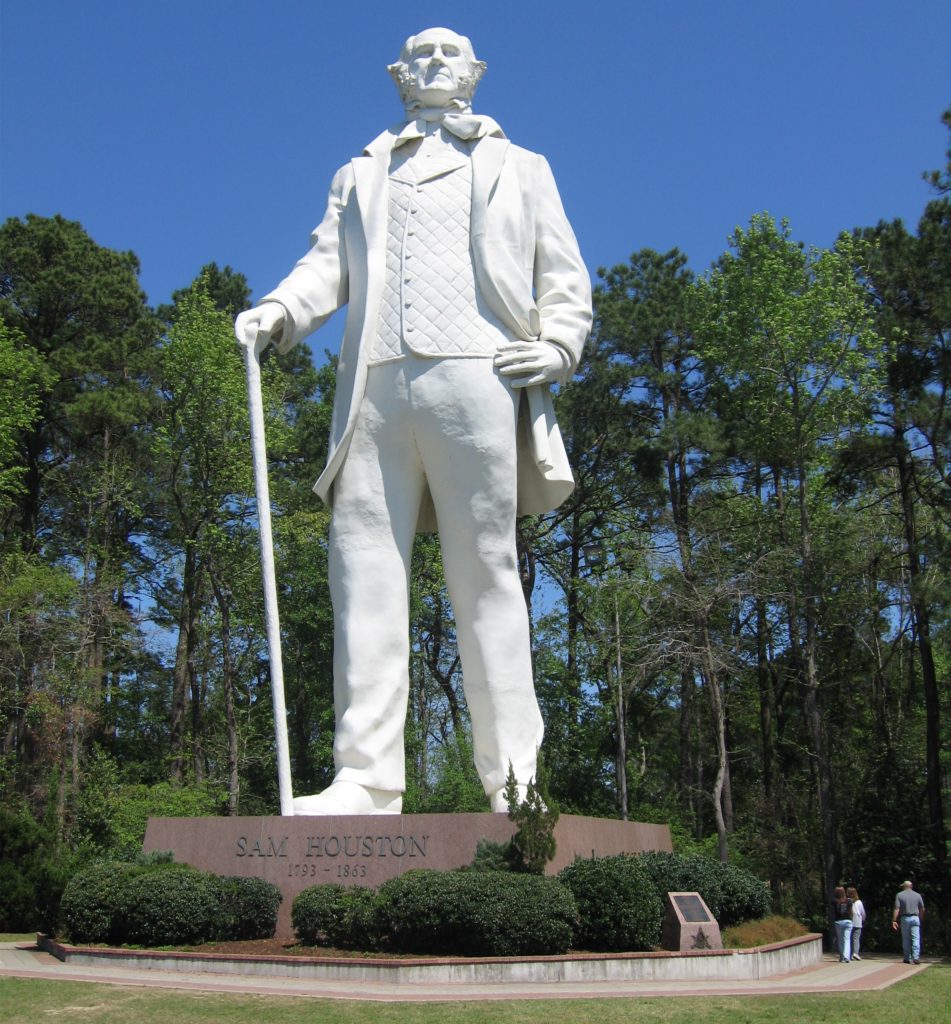
Houston was a pragmatic man who opposed secession for Texas, not because he was against “the doctrine of states rights, [but because] the North is determined to preserve this Union. They are not a fiery, impulsive people as you are, for they live in colder climates,” he said bearishly to his fellow Texans in April 1861.
“But when they begin to move in a given direction, they move with the steady momentum and perseverance of a mighty avalanche; and what I fear is, they will overwhelm the South.” Unfortunately, his prediction was correct.
As then-governor of Texas, Houston had been deposed by the Texas legislature and evicted from office in March 1861 due to his refusal to take an oath of loyalty to the Confederacy on the grounds that it betrayed “the nationality of Texas … the Constitution of Texas … [and his] own conscience and manhood.” Yet, he turned down a Union offer to lead a force of 50,000 men against the newly formed Confederate States of America.
Houston was no “forever Unionist,” imploring his son, Sam Jr., who had enlisted in the Confederate infantry to remember “Texas first, Texas last, Texas forever.” In a letter to Sam Jr. from July 1861, he wrote, “I am ready, as I have ever been, to die for my country (Texas) … the well-being of my country (Texas) is the salvation of my family; but to see it surrendered to Lincoln, as sheep in the shambles, is terrible to me.”
Houston may have been considered plain-spoken for his time, but his understanding of the American experiment and human nature surpassed many of his contemporaries. “The great misfortune is that a notion obtains with those in power that the world, or the people, require more governing than is necessary,” he rightly opined.
“To govern well is a great science, but no country is ever improved by too much governing. Govern wisely and as little as possible! Most men think when they are elevated to position that it requires an effort to discharge their duties and they leave common sense out of the question.”

Someone I know twice jokingly referred to my son as “Little Drunk” since Sam Houston was sometimes called “Big Drunk” by his Cherokee brethren. This person, as it turns out, is typically quite the polite and kind lady, so I couldn’t just blow off her off-color quip as simple Yankee rudeness. Maybe it was nervous small talk, or perhaps we just have a vastly different sense of humor.
Whatever the case, I do think her brush-off of both Sam Houston’s achievements and her casual insult aimed at my son’s namesake is illustrative of Muricans’ obsession with presentism: not looking at historic figures through the context of their time while also assuming that moderns are the smartest and most perfect of creatures. It seems to be the habit of even nice people to exhibit such condescension and to perpetuate politically correct jabs when it comes to the past, especially when it concerns white Southern men.
Sam Houston had his struggles, just like I do. He was sinful, just as we all are. Yet, his accomplishments and influence are so immense in spite of the obstacles, some out of his control and others self-inflicted.
Let’s try to imagine what more Houston could have done if he hadn’t battled alcoholism. At 6-foot-2, he was towering for his time. He was the “colossus in buckskin” who bucked popular trends, yet was still overwhelmingly beloved by his people but forlorn in romantic love. He was authentic to the bone.
Thank God we stand on the shoulders of larger-than-life men like Houston. Today’s political pipsqueaks and self-important soyboys shrink in his shadow, spitting upon the hard-fought heritage that was bequeathed to them.
So I pray my sons learn from and build upon Houston’s experiences of duty and determination, triumphs and travails, nonconformity and nuance, freethinking and first principles, and heartbreak and home as they carve out their place in a future that I think will be even more treacherous and challenging than the one he faced. May they heed the lessons of history when men were giants and boldly conquer the unknown.
Article originally published July 28, 2020, at DissidentMama.net.
Truth warrior, Jesus follower, wife, and boymom. Apologetics practitioner for Orthodox Christianity, the Southern tradition, homeschooling, and freedom. Recovering feminist-socialist-atheist, graduate of the University of Wisconsin-Madison, and retired mainstream journalist turned domesticated belle and rabble-rousing rhetorician. You can read her blog at Dissident Mama.

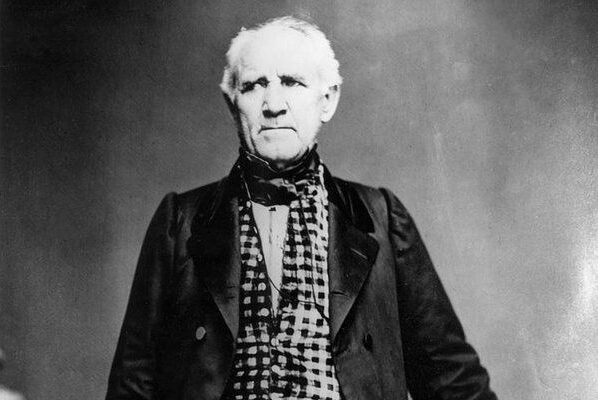

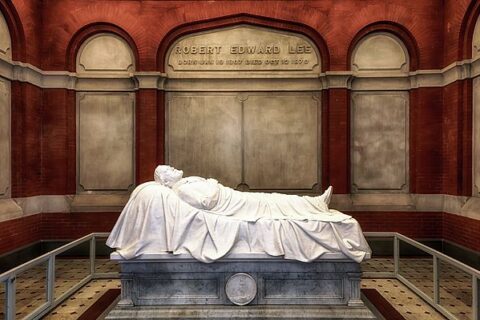
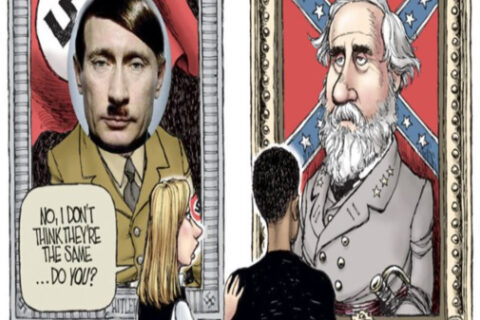

In Search Of The Northern Soul (Christmas Special) … Heidegger’s “Clearing” and the Ancients of Our Own Kindred, the “Void”:
https://www.youtube.com/watch?v=B7KDlZsDcto
“Why is Steve Mnuchin Working on Behalf of Wall Street to Crush Cryptocurrency and Deplatform the ‘Little Guy?’
Coinbase CEO Brian Armstrong is sounding the alarm over a proposed regulation from the Department of the Treasury that would clamp down on the use of independent cryptocurrency wallets and potentially strengthen financial censorship.
The Southern Poverty Law Center (SPLC), a far-left organization that has worked with and pressured financial companies to financially blacklist right-wingers, complained in an article in 2017 that Bitcoin and other cryptocurrencies “leave a gap for hate groups.”
If cryptocurrency transactions are forced to go through banks, which already engage in deplatforming, this would effectively end one of the last means of financial independence available to those whose opinions run afoul of America’s corrupt ruling class and their enforcers in the media. President Trump must not allow Mnuchin to go through with these crypto restrictions which would only serve to enrich the his globalist enemies and empower them to censor and financially punish his supporters.”
https://www.revolver.news/2020/12/mnuchin-disaster-cryptocurrency-wallet-regulations/
Why would Sam Houston be so pro Union wherein the State joining loses all sovereignty and can only leave on pain of a bloodbath as opposed to a Confederation, where a State could leave in peace ? Texas first ?
See FYI above …
Jack,
Because that’s how many statesmen of the time thought – that they had fought so hard for independence and honestly thought that “union” was the only way to defend state sovereignty, that is, as long as the federal gov’t played by the rules.
Like Calhoun said, “Our Federal Union — next to our liberties the most dear! May we all remember that it can only be preserved by respecting the rights of the States and distributing equally the benefits and burdens of the Union!”
Of course, the latter part of the quote is the hinge upon which this all swings. This is why his 1843 campaign slogan for prez was “FREE TRADE; LOW DUTIES; NO DEBT; SEPARATION FROM BANKS; ECONOMY; RETRENCHMENT, AND STRICT ADHERENCE TO THE CONSTITUTION.” He and people like Houston thought that the Constitution would actually keep centralization in check. We, with the benefit of time, now know different.
Here’s something I wrote a while back that may explain things a bit better.
http://www.dissidentmama.net/puritans-part-3-a-progressive-unfolding/
And here’s a stellar essay by Vito Mussomeli that takes a deep dive on the seemingly ironic stance (for Union AND for states rights) of many good Americans from Houston’s time period.
https://www.abbevilleinstitute.org/blog/sam-houston-and-texas-secession/
Interesting, since it was an original Confederation that won independence and not a Union.
They, the several sovereign Republics, did bring themselves together into an “alliance” of confederates, ie. a “union” of sovereigns for common purposes, ie. the common defense of their individual Republic’s sovereignties’ against foreign powers invasion (aka England, France, Spain) and not a monolithic consolidated democracy (aka communism), which consolidated government, no longer a union, was formed by conquest by the enclave agent of the confederation (the constitution FOR the “United States”) some parties within the congress assembled, and the enclave’s standing army, … committing treason against the sovereign Republics by waging war against them (see ARTICLE 3, SECTION 3 of the constitution FOR the federal enclave) who’s sole duty is to act as agent of the Confederacy union of sovereign’s, …but the enclave was usurped for a global power and global governance of, by and for a foreign monetary power by the treasonous conquest of the several sovereign Republics!
Read the Articles of Confederation and it’s lawful derivative the constitution FOR the “United States” (congress assembled) (the federal enclave agent) … the enclave and congress assembled is not the lawful Confederation of sovereigns styled the “United States of America”!!